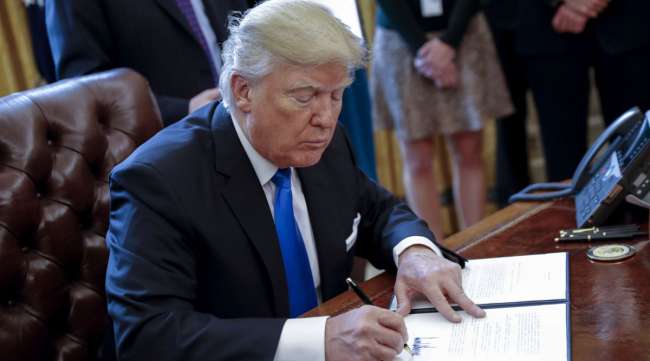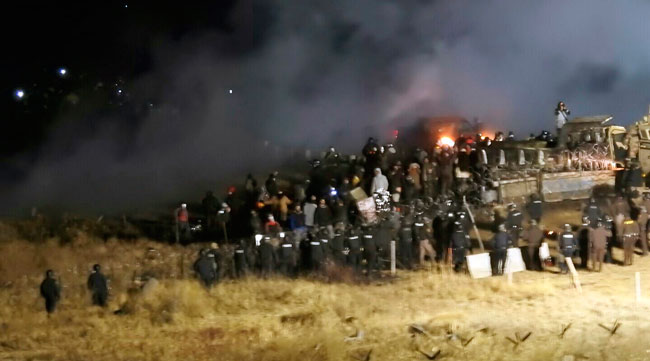Associated Press
Judge Orders Dakota Access Pipeline Shut Down Pending Review

[Ensure you have all the info you need in these unprecedented times. Subscribe now.]
FARGO, N.D. — A federal judge on July 6 sided with the Standing Rock Sioux Tribe and ordered the Dakota Access pipeline to shut down until more environmental review is done.
In a 24-page order, U.S. District Judge James Boasberg wrote that he was “mindful of the disruption” that shutting down a pipeline that has been in operation for three years would cause, but that it must be done within 30 days. His order comes after he said in April that the pipeline remained “highly controversial” under federal environmental law, and a more extensive review was necessary than the assessment that was done.
“Clear precedent favoring vacatur during such a remand coupled with the seriousness of the Corps’ deficiencies outweighs the negative effects of halting the oil flow for the 13 months that the Corps believes the creation of an EIS will take,” Boasberg wrote July 6.
Boasberg had ordered both parties to submit briefs on whether the pipeline should continue operating during the new environmental review.

Law enforcement and protesters clash near the site of the Dakota Access Pipeline in Cannon Ball, N.D., on Nov. 20, 2016. (Morton County Sheriff's Department via AP)
The pipeline was the subject of months of protests, sometimes violent, during its construction near the Standing Rock Sioux Reservation that straddles the North Dakota-South Dakota border. The Standing Rock tribe pressed litigation against the pipeline even after it began carrying oil from North Dakota across South Dakota and Iowa and to a shipping point in Illinois in June 2017.
Jan Hasselman, an attorney for the Standing Rock tribe, tweeted news of Boasberg’s ruling and said: “Stunning.”
Texas-based Energy Transfer, the pipeline owner, didn’t immediately respond to a message seeking comment.
The $3.8 billion, 1,172-mile underground pipeline crosses beneath the Missouri River, just north of the Standing Rock reservation. The tribe draws its water from the river and fears pollution. Energy Transfer insisted the pipeline would be safe.
The company last year proposed doubling the capacity from 600,000 barrels per day to as much as 1.1 million barrels to meet growing demand for oil shipments from North Dakota, without the need for additional pipelines or rail shipments.

Transport Topics introduces its newest digital interview series, Newsmakers, aimed at helping leaders in trucking and freight transportation navigate turbulent times. Audience members will gain access to the industry's leading expert in their particular field and the thoughtful moderation of a Transport Topics journalist. The inaugural episode — "Understanding Trucking's Economic Landscape" — featuring American Trucking Associations Chief Economist Bob Costello, will air live on July 9 at 2 p.m. ET. Registration is free. Sign up today.
Before the coronavirus pandemic devastated the U.S. oil industry, daily oil production in North Dakota — the nation’s No. 2 oil producer behind Texas — was at a near-record 1.45 million barrels daily. The state’s output has slipped to below 1 million barrels daily amid low energy prices and sparse demand.
The U.S. Army Corps of Engineers in 2018 completed more than a year of additional study of the pipeline, saying the work substantiated its earlier determination that the pipeline poses no significant environmental threats.
Boasberg in June 2017 ruled that the Corps “largely complied” with environmental law when permitting the pipeline but ordered more review because he said the agency didn’t adequately consider how an oil spill under the Missouri River might affect the Standing Rock Sioux tribe’s fishing and hunting rights, or whether it might disproportionately affect the tribal community. That concept, known as environmental justice, aims to ensure development projects aren’t built in areas where minority populations might not have the resources to defend their rights.
Permits for the project were originally rejected by the Obama administration, and the Corps prepared to conduct a full environmental review. In February 2017, shortly after President Donald Trump took office, the Corps scrapped the review and granted permits for the project, concluding that running the pipeline under the Missouri River posed no significant environmental issues. The Corps said that opinion was validated after an additional year of review, as ordered by the court.
Want more news? Listen to today's daily briefing:
Subscribe: Apple Podcasts | Spotify | Amazon Alexa | Google Assistant | More




